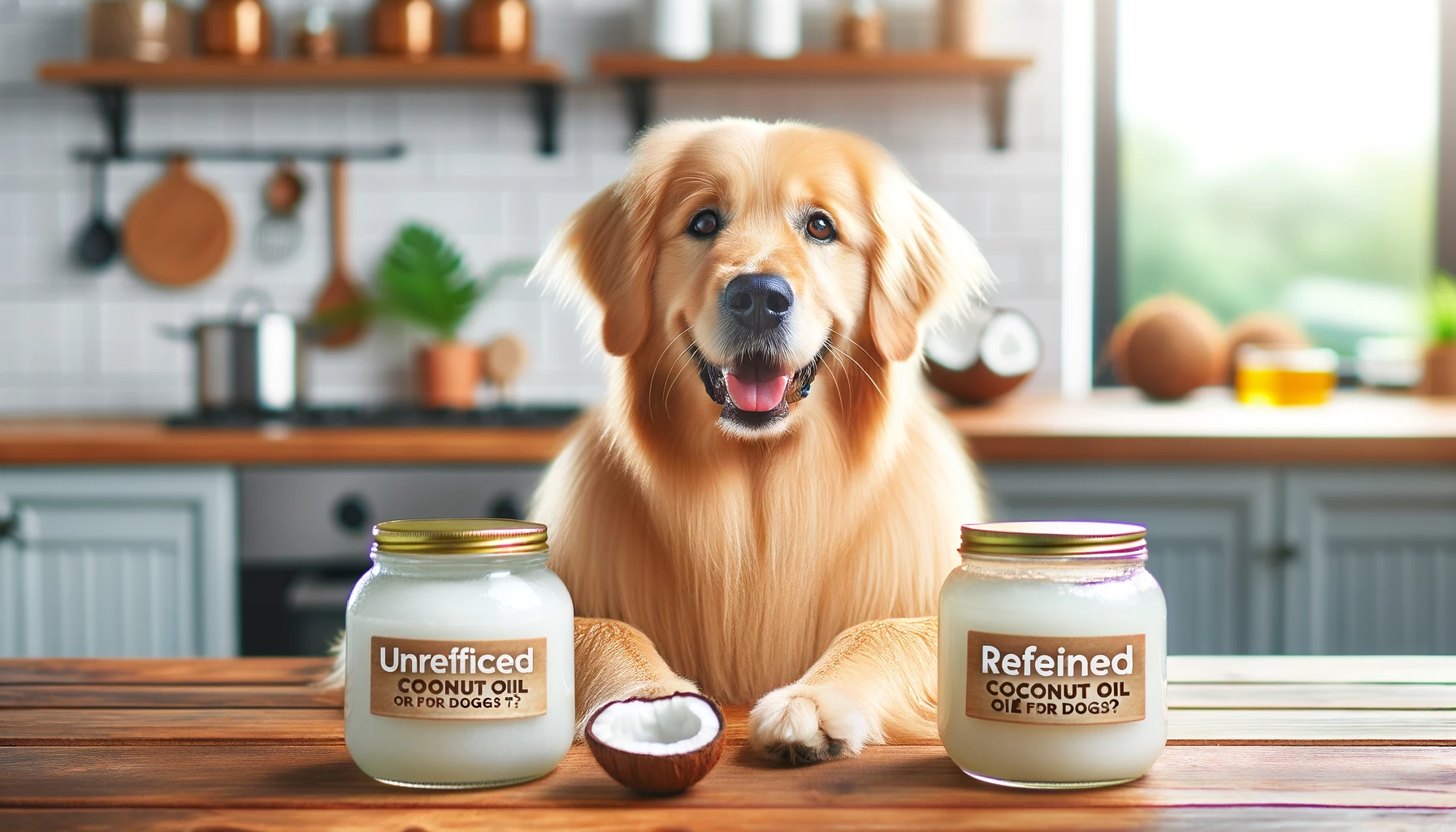Key Takeaways:
| Aspect | Details |
|---|---|
| Best Type of Coconut Oil | Unrefined (Virgin) Coconut Oil |
| Recommended Processing | Cold-Pressed |
| Safety and Usage | Generally Safe in Small Amounts, Topical or Ingested |
| Allergic Reactions and Risks | Possible Allergies, Risk of Diarrhea, Not for Dogs Prone to Pancreatitis |
| Label Understanding | Look for Organic, Cold-Pressed, Unrefined Labels |
Exploring the Best Coconut Oil for Canine Health
Coconuts and their derivatives have long been celebrated for their versatile health benefits. When it comes to our canine companions, the type of coconut oil we choose can significantly impact their well-being. This article delves into whether refined or unrefined coconut oil is more suitable for dogs, guided by insights from experts and comprehensive research.
Unrefined Coconut Oil: A Superior Choice for Dogs
Unrefined coconut oil, often labeled as virgin coconut oil, is deemed the superior choice for dogs. This type of oil is extracted from fresh coconut meat and undergoes minimal processing, thus retaining most of its natural nutrients. Cold-pressed unrefined coconut oil is particularly recommended, as this method preserves essential nutrients and beneficial compounds, ensuring maximum health benefits for your pet.
The Benefits of Cold-Pressed Virgin Coconut Oil
- Nutrient Preservation: Cold-pressing ensures the retention of beneficial nutrients.
- Safety for Consumption: Generally safe for dogs when given in small amounts.
- Topical Application: Can be applied to a dog’s skin or fur to enhance coat health.
- Avoidance of Chemicals: Free from harmful chemicals that might be present in refined oils.
Potential Risks and Considerations
While unrefined coconut oil is largely beneficial, it’s crucial to be aware of potential risks:
- Allergic Reactions: Some dogs might be allergic to coconut oil.
- Digestive Issues: Overconsumption can lead to diarrhea.
- Not Suitable for All Dogs: Dogs prone to pancreatitis should avoid coconut oil due to its high-fat content.
How to Choose the Right Coconut Oil
When selecting coconut oil for your dog, consider the following:
- Label Inspection: Look for labels that indicate the oil is organic, cold-pressed, and unrefined.
- Understanding the Difference: Refined coconut oil undergoes more processing and may contain fewer nutrients.
- Consulting a Vet: Always consult with your veterinarian before introducing new supplements into your dog’s diet.
Incorporating Coconut Oil in Your Dog’s Diet and Care
Understanding the right way to introduce coconut oil into your dog’s routine is crucial for maximizing its benefits while minimizing any risks. Here are some practical tips:
Dietary Integration
- Start Small: Begin with a small amount of coconut oil in your dog’s diet and observe their reaction.
- Gradual Increase: If well-tolerated, gradually increase the amount.
- Mixing with Food: Mix coconut oil with your dog’s regular food to make it more palatable.
Topical Application
- Skin and Coat Health: Apply a small amount of coconut oil to your dog’s skin or fur to improve coat health and alleviate dry skin.
- Light Touch: Use a light touch to avoid a greasy coat.
- Regular Grooming: Incorporate coconut oil into your regular grooming routine for a healthier, shinier coat.

Understanding Refined Coconut Oil
Refined coconut oil, while not as nutrient-rich as its unrefined counterpart, still offers some benefits and is generally considered safe for dogs. It’s processed to remove impurities and flavor, making it more heat-stable but also stripping away some of the natural compounds that make virgin coconut oil beneficial. If choosing refined coconut oil, ensure it’s high-quality and free from harmful additives.
Expert Advice and Resources
Consultation with a veterinarian is key when adding any new supplement to your dog’s diet, especially if your dog has specific health issues. Additionally, our website offers more resources and insights into canine health:
- How Long Does Unrefined Coconut Oil Last?
- What is the Difference Between Refined and Unrefined Coconut Oil?
Conclusion
Choosing the right coconut oil for your dog involves understanding the benefits of unrefined, virgin coconut oil and its appropriate use. Refined coconut oil can be a secondary option, but the focus should be on quality and purity. Always prioritize your pet’s health and consult with a veterinarian for personalized advice.

